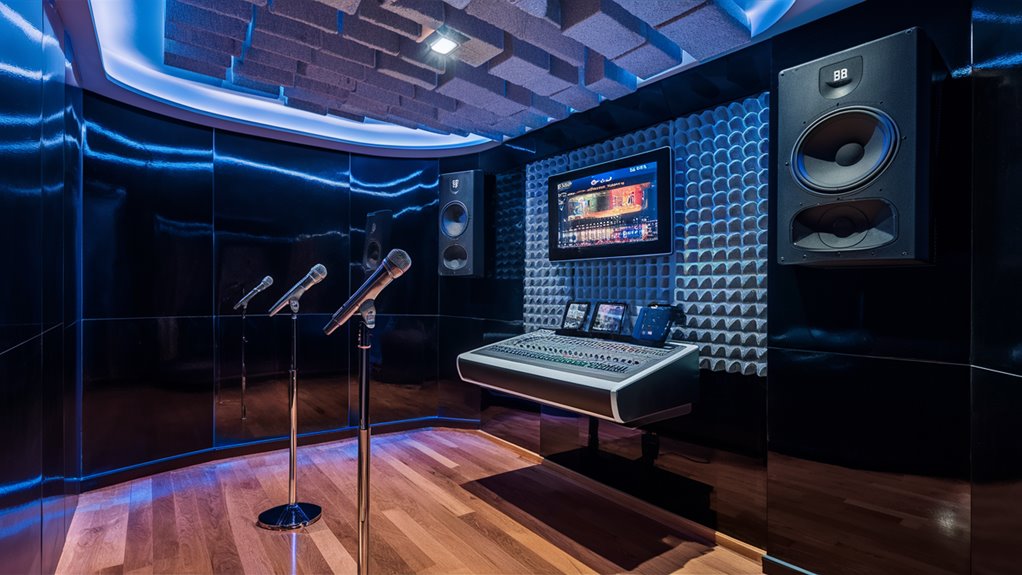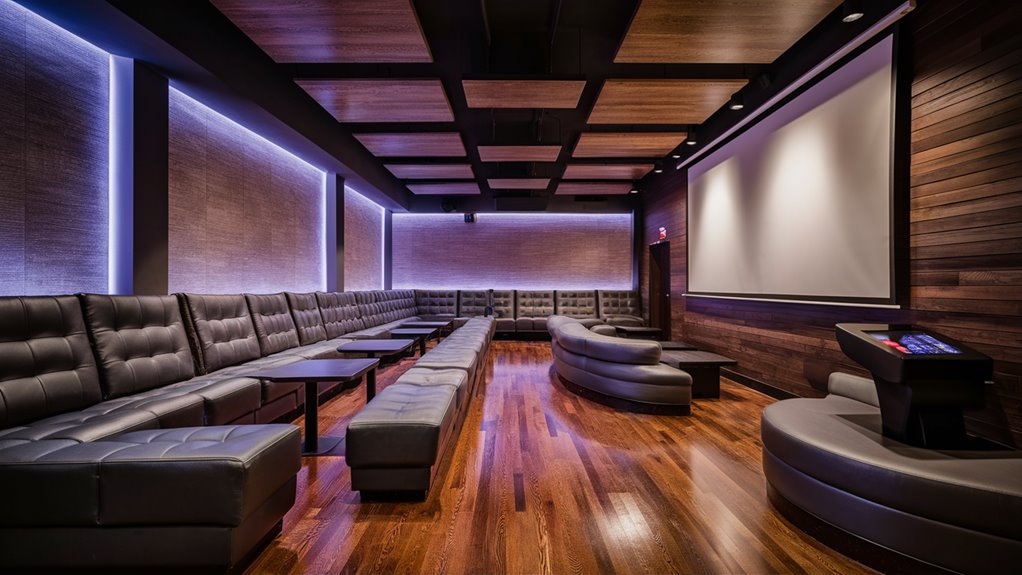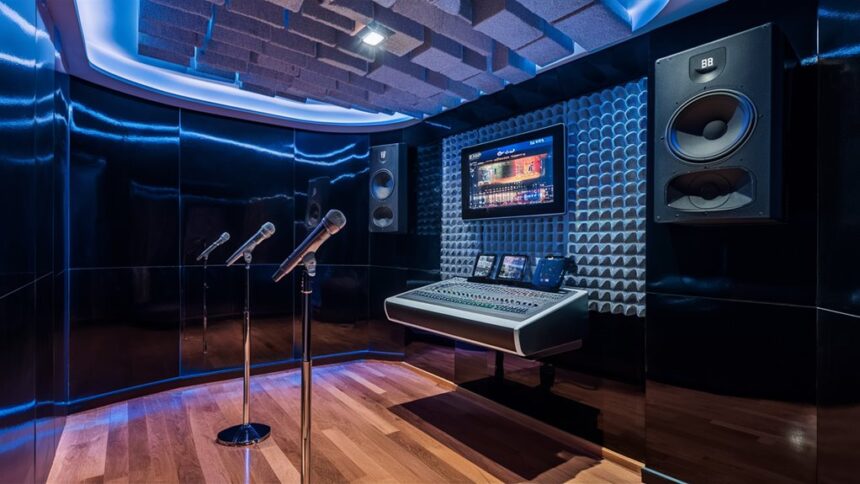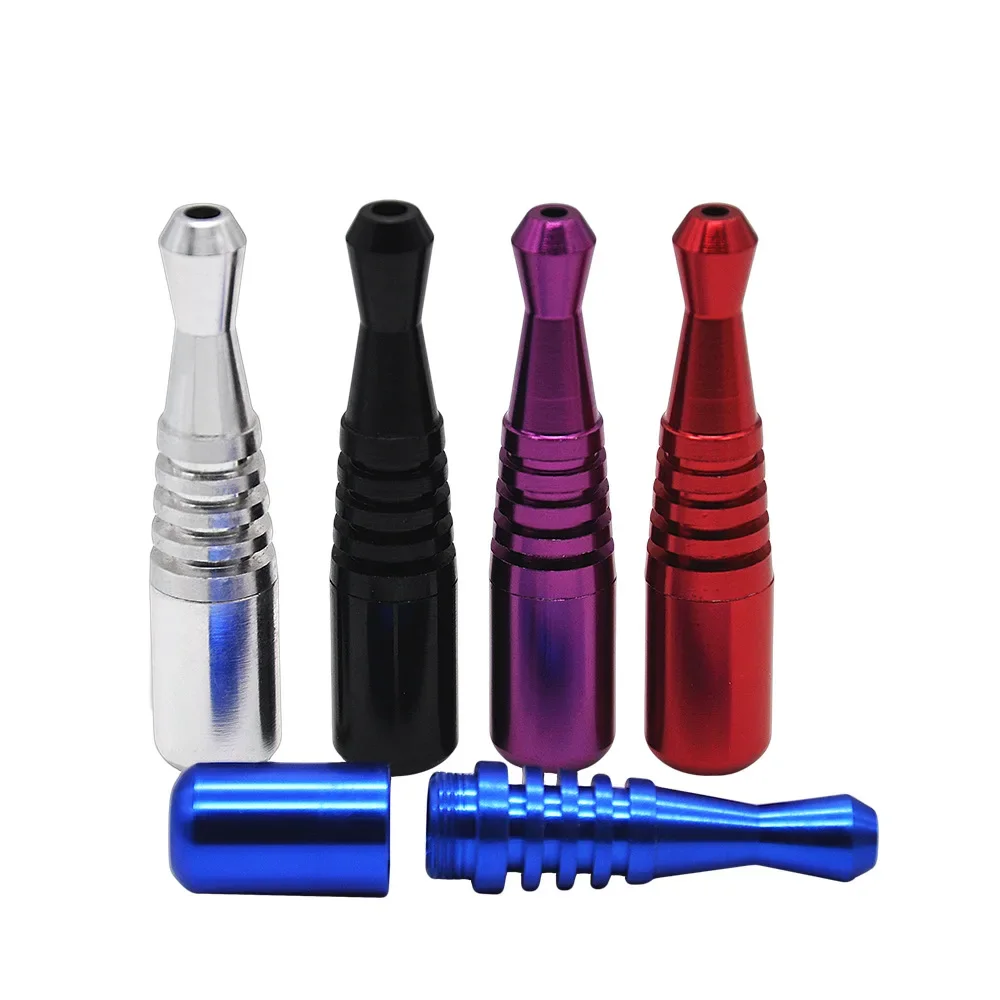
Essential Sound Equipment and Room Layout
High-quality sound gear is key in any top karaoke spot. Loud speakers and powerful amplifiers make the sound sharp, while soundproof panels keep each room quiet from the next. Two wireless mics that block out the noise let groups and duos sing smoothly.
Setting Up Rooms and Tech
Choosing the right room size can boost income, with 60% mid-sized rooms being most profitable. New spots use digital song menus with over 50,000 tracks in various languages. Flexible LED lights bring the space to life and add fun.
Earning More and Offering More
Food and drinks earn 40-60% of a venue’s revenue through simple electronic orders. Premium solutions mixed with diverse food choices increase spending per customer. Tablet screens aid in fast orders and song selection, while integrated payment methods keep transactions smooth.
Enhancing Operations
Intelligent room tech monitors usage to plan better. Optimized sound setups use sound-dampening materials and smart speaker placements to boost customer satisfaction by 40%. Regular updates of equipment and software ensure smooth operation and a growing song library.
Bare Necessities of Sound Systems
Superior sound gear is necessary for a successful karaoke setup, including self-amplified speakers, bass speakers, sound controllers, and specialized amplifiers. These elements team up for top-quality sound that keeps guests returning.
Achieving Great Room Acoustics
Soundproofing solutions ensure sound clarity. Installing sound-absorbing wall units prevents echoes and secures stellar sound quality.
A good sound mixer lets users adjust each audio channel, allowing guests to alter their mic and music levels for a better singing experience. Each room should feature two high-quality cordless mics to support duets and avoid technical issues.
Smart Decisions on Room Sizes
To make a karaoke business profitable, carefully consider room sizes and layout.
The ideal setup has three types of rooms:
- Small cozy rooms (2-4 people)
- Mid-sized group rooms (6-8 people)
- Large party rooms (10-15 people)
About Room Shape and Sound
Long rooms work better for sound and spacing than square ones.
Key design features include:
- Tiered seating
- Elevated spots to stand
- Ceilings 8-10 feet high
- Soundproof materials
Music Library Essentials
Must-Haves for the Music Collection

Building a vast digital music library is crucial for karaoke venue success.
Having at least 50,000 licensed songs across different styles, regions, and eras forms the foundation of a strong music collection.
Regular updates keep the selection fresh and engage customers.
Songs in Multiple Languages
Successful venues maintain a diverse range of music, including:
- Global hits
- Local favorites
- Important languages like:
- English
- Spanish
- Korean
- Japanese
- Mandarin
Searching Technology
Equip a smart search system so guests can locate songs using various filters:
- Search by song title
- Look up artists
- Language choices
- Music genres
Lights and Visual Effects
Advanced Lighting Tools
High-end LED technology improves karaoke venues by setting the perfect mood, increasing participation, and boosting revenue.
Color-changing LED setups using wall lights, ceiling spots, and stage lighting create the right atmosphere and depth.
Ordering with Modern Tech
Current ordering technology enhances guest experiences and smooths operations:
- Digital tablets in private rooms
- Room phones for quick assistance
- Quiet service methods to sustain the fun
Choosing Menu Items
Smart menu development focuses on foods suitable for karaoke settings:
- Large snack platters for sharing
- Easy-to-eat finger foods
- Clean eating options suitable for dim lighting
Room Booking
Digital Booking Techniques
Online platforms are crucial in how modern karaoke venues operate, aiding in maximizing profits and enhancing guest experiences.
A dual booking system mixes seamless digital interfaces with traditional phone booking to reach more people and simplify access.
Booking Technology
Real-time vacancy management and automatic confirmation systems ensure efficient digital bookings.
Incorporating secure payment technologies and requiring deposits reduces no-shows while protecting funds.
A robust Customer Management System tracks guest preferences, spending patterns, and visit frequency to serve them better.




























